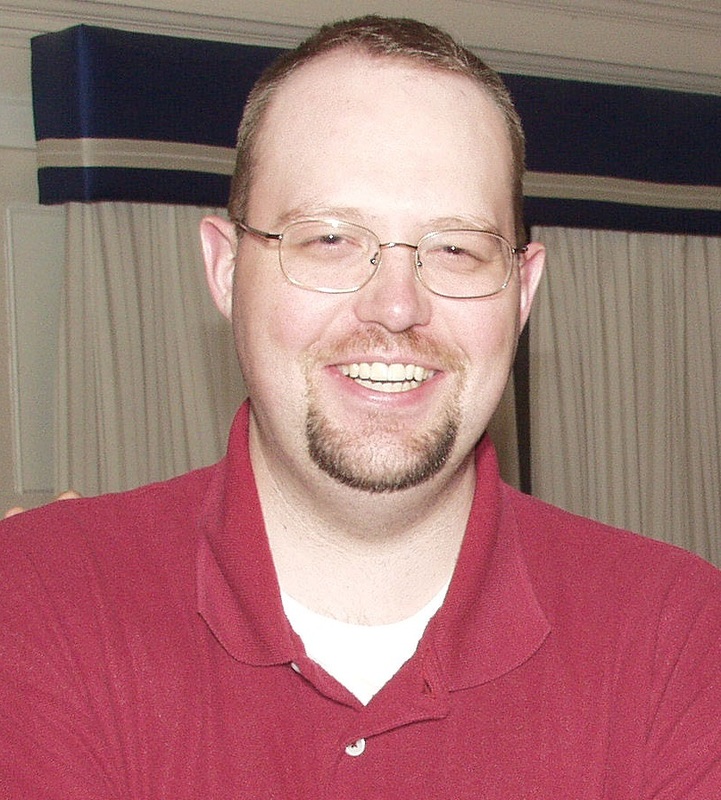As I carefully re-read Elder Ochoa’s address in preparation for the broadcast, I see I had assumptions that led me to a different conclusion than what Elder Ochoa likely intended. When you approach your life with the right assumptions, you can ask “Is the plan working?” and know that it is. Recognize your faulty assumptions  My assumptions began to influence my thinking from the start. When Elder Ochoa mentioned a young returned missionary whose life wasn’t working out the way he expected, I instantly assumed that young man was single. It seemed right to think that. Increasingly LDS singles aren’t marrying at all, and those who do marry do so later. Thus, many LDS singles wonder how the plan of happiness can be working for them when they seem shut out from the blessings of happiness they desire. In that light, Elder Ochoa’s address could’ve been addressing LDS singles when he said,
But Elder Ochoa never identified that discontent young man as single. He may have been single, but he also could have been married. We simply don’t know because Elder Ochoa never said. That’s important, because my assumption the man was single led me to an erroneous conclusion about Elder Ochoa’s address. Distinguish between two plans  Here’s the real problem: There’s two plans we’re talking about here. The first is God’s plan for His children that spans eternity. The second is our plan for our lives here in mortality. With both plans intended to result in our happiness, it’s easy to get them confused. Many LDS singles do in fact confuse them because of faulty assumptions behind their thinking. The largest of these is the idea that righteous blessings result from righteous behavior. The faulty connection assumed here provides particular challenge when the blessing sought is marriage, a blessing not predicated entirely or even largely on righteous behavior. Notwithstanding, those singles who chose to assume that faulty connection in their thinking are more likely to turn tone deaf when they hear messages like this:
Many LDS singles who falsely assume righteousness leads to marriage hear that and respond, “What are you talking about? I’m trying to honor my covenants, so of course I’m following Jesus. But I still don’t have my desired blessings, so how can you say the plan works?” Again, we’re talking about two different plans here. Just because our plan for mortality isn’t working doesn’t mean God’s plan for eternity isn’t also. Focus on the right plan  Elder Ochoa doesn’t address that distinction. His solution for people who feel the plan of happiness isn’t working for them is to act in faith, turn to Jesus, and humble themselves. That’s a great approach when you’re talking about God’s plan that spans eternity. But it offers little to those largely concerned with receiving a blessing in this life. That’s why my faulty assumption at the start of his remarks led me to conclude falsely. Every time Elder Ochoa speaks of “the plan of happiness,” he’s talking about God’s plan that spans eternity. But my faulty assumption at the start got me focused on receiving a blessing in mortality. And with that focus, I couldn’t connect with Elder Ochoa’s real message. Is the plan working? That depends on which plan you’re talking about. If you’re talking about the plan you make for yourself for happiness in mortality, then it may or may not be working, depending on your assumptions. But if you’re talking about the plan God made for His children to be happy in eternity, then yes, that plan is working great so long as we make and keep every sacred covenant we can. When you question your assumptions and get clear about distinguishing between God’s plan for life in eternity and your plan for life in this world, you can better feel the power of perspective helping you to let go of everything holding you back from enjoying each moment irrespective of your circumstances. And that will bring you more joy in your journey.
0 Comments
That relaxed attitude was no match for the “Yeah, but”s that always intervene when we’re stretching ourselves out of our comfort zone. “You should work on that dream” confronts “Yeah, but it’s been a long day and I’m too tired” and you don’t make any progress on your goals and dreams. “You should finish that task” meets “Yeah, but I’ve got bills to pay [or insert other work that appears to take priority]” and you don’t make any progress on your goals and dreams. So if you want to move towards your goals and dreams, don’t be a butthead! Leave your comfort zone  So long as we stay within our comfort zones, we’ll always have average lives of mediocrity. And that’s the way our brain likes it. How do I know? Quite simply, it’s designed into our biological hardwiring. Anciently, venturing too far outside your comfort zone could get you killed. Thus, the forces of evolutionary biology adjusted the design of our internal controls. Our biological hardwiring now provides a check point if we go too far beyond the borders of safety. “You don’t really want to go this way” becomes the persuasion of the moment attended by a natural pull back within our comfort zone. It’s all designed to keep us safe. But staying safe will never result in your best life because staying safe leads only to mediocrity. Now, I’m not saying we need to be a reckless version of Evel Knievel. What I am saying is playing it safe every time never got anyone anywhere. Your best life isn’t found inside your comfort zone. If it were, you’d have your best life because it’d be easy to find and you wouldn’t be dreaming of something better. Turn knowledge into action None of this is new to me; I’ve known all of it for years. So why then have I kept slipping? Why hasn’t the knowledge of how my biological hardwiring works translated into forward-propelling action? It’s comforting to know that even with all my slipping the ball’s at the one-yard line, but even still. why isn’t it in the in-zone? I simply haven’t been vigilant watching for lapses. Our biological hardwiring has us operating mostly out of habit, so it’s easy for eyes to drift away from watching out for potential slips. And those opportunities to slip sneak so silently upon us that not watching vigilantly essentially invites slips towards our goals and dreams to occur. Those slips often begin with “Yeah, but.” Without vigilant watching, those “Yeah, but”s come and carry the moment. Each surrender to natural inclination is a vote to stay average. Over time, those votes can aggregate to deliver a life of mediocrity. In this way you can get close to scoring but never actually do. Adopt a new habit  Can you ever get the “Yeah, but”s out of your head? No, they’re a part of your biological hardwiring. But you can develop habits for confronting those “Yeah, but”s successfully. Begin by deciding your response in advance. Then write out that response: “When I get told ‘Yeah, but’ X in such-and-such situation, I will Y.” Writing out your response burns it more into your brain so that, when your trigger event occurs, you’re more likely to follow through with your pre-determined response. Once you play that out enough times, you’ll have a new habit that propels you forward to your goals and dreams. So don’t be a butthead. Don’t just let the waves of life carry you wherever the winds happens to blow. Own your life. Take control. Reject any surrender to “Yeah, but” by setting yourself up to adopt the habits you need to succeed. You’ll find yourself slipping a lot less and scoring wins a lot more on the road to your best life. And that will bring you more joy in your journey.
There really was nothing wrong with me, but there was something wrong with my thinking. Despite seeming natural, these sorts of comparisons with others are never fair. And I wasn’t alone there; many LDS singles unwittingly compare themselves to others. But you should compare you with you and no one else. Understand how you’re built Comparing yourself to others is inherently unfair. We all have different backgrounds, different knowledge, different experiences, different ways of seeing the world. Comparing yourself with others is like comparing apples and oranges. They’re both fruits, but beyond that they have few similarities. Yet recognizing that no good comes from that comparison doesn’t stop anyone from doing it. Why does it seem so natural to compare ourselves with others? Why are we so prone to make these comparisons despite their inherent unfairness? The answer is biology. We’re all biologically hardwired with a basic desire to be loved and accepted. Since like begets like, that desire translates into a desire to be normal, to fit in, to belong. And so part of our biological hardwiring assesses what’s normal by comparing ourselves with those around us. Think of that system as a sort of thermostat. We set our “temperature” to match the “temperature” of those around us so we’ll be like them and therefore fit in. This is why fat people who hang out with fat people find it hard to lose weight and fat people who hang out with skinny people find it easier to lose weight. In both cases, biology prompts the individual to be more like those whom that individual spends substantial time. Leverage how you’re built The same biological hardwiring works in any situation, including the one in which LDS singles feel like Moroni as they watch their friends leave singles life one by one. They feel out of place because they’re not like those around them. Time’s progressing, but they don’t seem to be. How do you deal with such situations? If your biological hardwiring has you wanting to be like those around you, and you find yourself stuck and unable to be like those around you, are you doomed to a miserable existence? My response? Only if you want to be. You can’t change your biological hardwiring, but you can redirect its influence. First, recognize both your propensity to compare and the inherent unfairness in comparing yourself with others. Then accept comparisons only between you and you. Every time you find yourself comparing you with anyone else, stop, remind yourself how unfair that comparison is, and then compare you with you. Essentially, you compare the person you are today with the person you were previously. It may be the person you were last year, last month, last week, yesterday, or even earlier today. But if you can see a reasonable improvement between the previous and present you, you’re making progress. And that’s what really matters. Grow into something more Of course, simply making progress doesn’t necessarily satisfy the basic need to belong, especially if everyone one around you isn’t comparing them with them. But that just highlights the need to choose with caution those with whom you choose to spend your time. Maximize your time around others who’ll help you compare you with you, and minimize your time around others who won’t. In the end, it won’t matter whether you did this or that within whatever time frame as much as whether the you at the end is better than any previous you, because that will mean you made progress along the eternal path. And making progress along that path will mean your time spent in mortality was worthwhile. Stop comparing yourself with others. They don’t have the same combination of background, knowledge, experience, and perspective you have. For all we share in common, our individual experience in mortality really is individual. So compare you with you and no one else. You’ll turn your focus more on making the progress you need to make, and that focus will then determine a reality of progress. And that will bring you more joy in your journey.
What impressed me the most in that meeting was a Japanese sister. As she rambled on in her broken English from one topic to the next, I struggled to make sense of what she was trying to say. But then she spoke two words that captured my attention: Expect miracles. Nourish your thinking I have no idea why she said those two words. Perhaps she was referencing President Nelson’s address from the last Conference on spiritual momentum. Perhaps she was talking about something else related to miracles. Or perhaps she was talking about something completely unrelated and the Spirit prompted her to say those words because I needed to hear them. I say I needed to hear them because they captured my attention. And as I began pondering those words and remembering what I said about them in a recent episode of this program, I immediately felt prompted to make them the focus for this episode of Joy in the Journey Radio. So perhaps there is someone out there who needs this message. Regardless of the need, I do believe this message is important for all LDS singles to review on a regular basis. We need to nourish our thinking with better assumptions, better perspectives, better attitudes, and better self-talk. The idea of expecting miracles encompasses all four of those elements. Reformat and reboot For example, too many LDS singles assume the future will be just like the past. They place so much emphasis on the choices others make, they do not perceive the power inherent in their own choices. A discouraging outlook encourages a despondent attitude. And all of these elements then find reinforcement in self-talk: “What’s the point of trying?” “Why would anyone choose me?” “I’m not good enough.” “I’ll never be loved.” All these messages played on autopilot via habits of thinking reinforce the faulty assumptions, the diminished perspectives, and the failing attitudes that will never lead to success. Expecting miracles reverses all that. Expecting miracles in your life assumes miracles can and will come to you. Expecting miracles exchanges the perspectives focused on the past for ones focused not just on the future but on a future that’s very different from the past. Expecting miracles encourages an optimistic positive attitude. And expecting miracles encourages uplifting self talk: “I’ll keep trying because I will succeed.” “My miracle will choose me.” “I’m more than good enough for my miracle.” “My miracle will happen because I’m already loved.” There’s a night-and-day difference between expecting miracles and the less effective ways of thinking many LDS singles choose to tolerate. Many so choose because they simply aren’t aware of the difference. But having that awareness, why would you choose not to expect a miracle? Why would you cheat yourself of the glorious best life you could have? Position yourself better Of course, miracles are more likely to come and are therefore easier to expect when you get your game on. Put yourself in a good financial position. Serve faithfully in your Church calling. Take care of your responsibilities, including those involving self-care. These changes likely won’t come overnight, but every effort to move in that direction moves you closer into a space where miracles can more easily come. My friend provides a good example. His real interest in attending that Sunday School class was a special “person of interest” (as he calls her). During the drive back, he told me they’d met only one month ago. I was surprised to hear that. Given the way they hugged each other in the parking lot before leaving, I thought they’d known each other longer. But apparently they just hit it off really well. I’d call that a miracle. So expect miracles in your life. Believing in and opening yourself up to possibility can improve your probability of success. By working as you can on improving yourself and your situation, you can move yourself into the space where your miracle can more easily come. That miracle can be the door that swings your best life wide open to you. And that will bring your more joy in your journey.
It’s not uncommon to find singles who have extended such expectations to every part of their lives. They include how many kids they will have, where they will live, what kind of career they have, and more. The list of rules their life is supposed to follow is quite long if not endless. Well, I’ve got just one thing to say to that. Your rules are dumb. Make rules for you Setting rules for how life is supposed to proceed establishes expectations. And that’s a problem, especially where other people are involved. Everyone is so imperfect that you’re almost certain to be disappointed. I know that sounds cynical. I’m not trying to be. Successful people take the world as they find it, not as they wish it would be. That means seeing things as they really are and calling them out. Expecting people to act a certain way so your life can unfold according to your fantasy is just dumb. Instead of establishing rules for how others should act, make rules for how you should. Others will almost certainly disappoint you, but you can choose not to disappoint yourself. You can work towards your best life by becoming your best self, and you do that by exercising the discipline to conform to rules that your best self would follow. That process of struggle as you seek to change not just your behavior but your identity fuels the growth for the transformation into your best self. Leverage life’s little surprises Your rules for how your life should proceed are dumb for another reason. By staking out an expectation of what will or even should happen, you cut off all other possibilities from being acceptable. And that removes much of the beauty your life could have. Life is wonderful not because it conforms with some plan of perfection but because of possibility. Variety and spontaneity are the spices of life because they highlight possibilities. It’s the possibility of surprise that helps make it interesting. Of course, some of those surprises would be more interesting if they didn’t invade your life. For example, my place recently flooded for the third time in the last two months. A surprise to be sure, but I don’t wallow in playing the victim. I choose to leverage the event to fuel my drive to improve my situation. Those improvements require me to think creatively about possible solutions and to work hard to realize them. If I insisted that my place wasn’t supposed to flood because that’s not how my life is supposed to be, I’d cut off the creativity I need to find solutions. I’d spend far too much time focusing on the problem, which creates a reality filled with problems. I’d miss out on how beautiful my life could be by truly living it — taking it by the reins and making it the best it can be. Open yourself to possibility What would happen if you suspended your rules and opened yourself to possibility? Instead of insisting that your life proceed according to some pre-determined expectation, what if you had the humility to embrace an alternative? I recall in a previous ward receiving an invitation to dinner. The family had invited another family to join us. As we waited for the women to finish preparations, the children were playing outside, and we men were conversing. Speaking of his wife, one of the men said, “I never thought I’d be happy with a red head, but I am.” When single, he expected he needed to marry a blonde to be happy. What he found by releasing that expectation and embracing possibility was true happiness found not in what he had but in what he gave. And the life he described living was truly beautiful. Your rules are dumb. Let go of the expectations that life must unfold a certain way in order for it to work for you. Your life will work for you when you do the work your best life requires. And that will bring your more joy in your journey.
|
Author
Howdy! I'm Lance, host of Joy in the Journey Radio. I've been blogging about LDS singles life since 2012, and since 2018 I've been producing a weekly Internet radio show and podcast to help LDS singles have more joy in their journey and bring all Latter-day Saints together. Let's engage a conversation that will increase the faith of LDS singles and bring singles and marrieds together in a true unity of the faith.
Comment
Joy in the Journey Radio encourages the free discussion of ideas but reserves the right to remove and/or block comments which do not conform to LDS standards.
Donate
Joy in the Journey Radio offers many free resources to help LDS singles everywhere, but it certainly isn't free! Help Joy in the Journey Radio in its mission to improve the lives of LDS singles by donating today.
Posts by Month
December 2022
Categories
All
|










 RSS Feed
RSS Feed